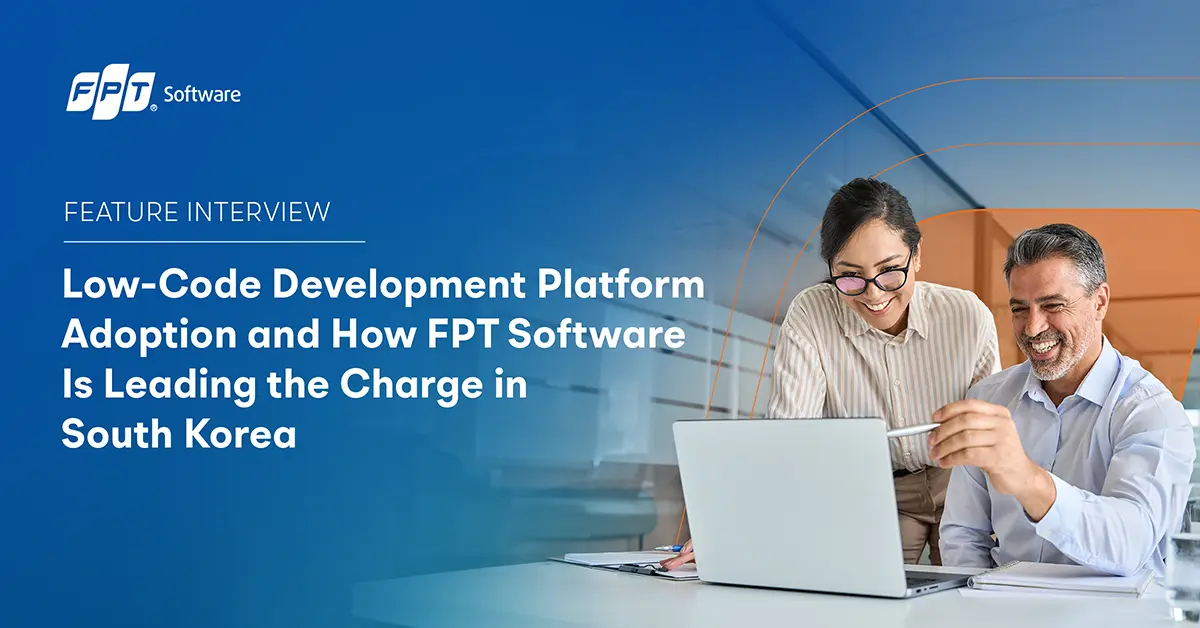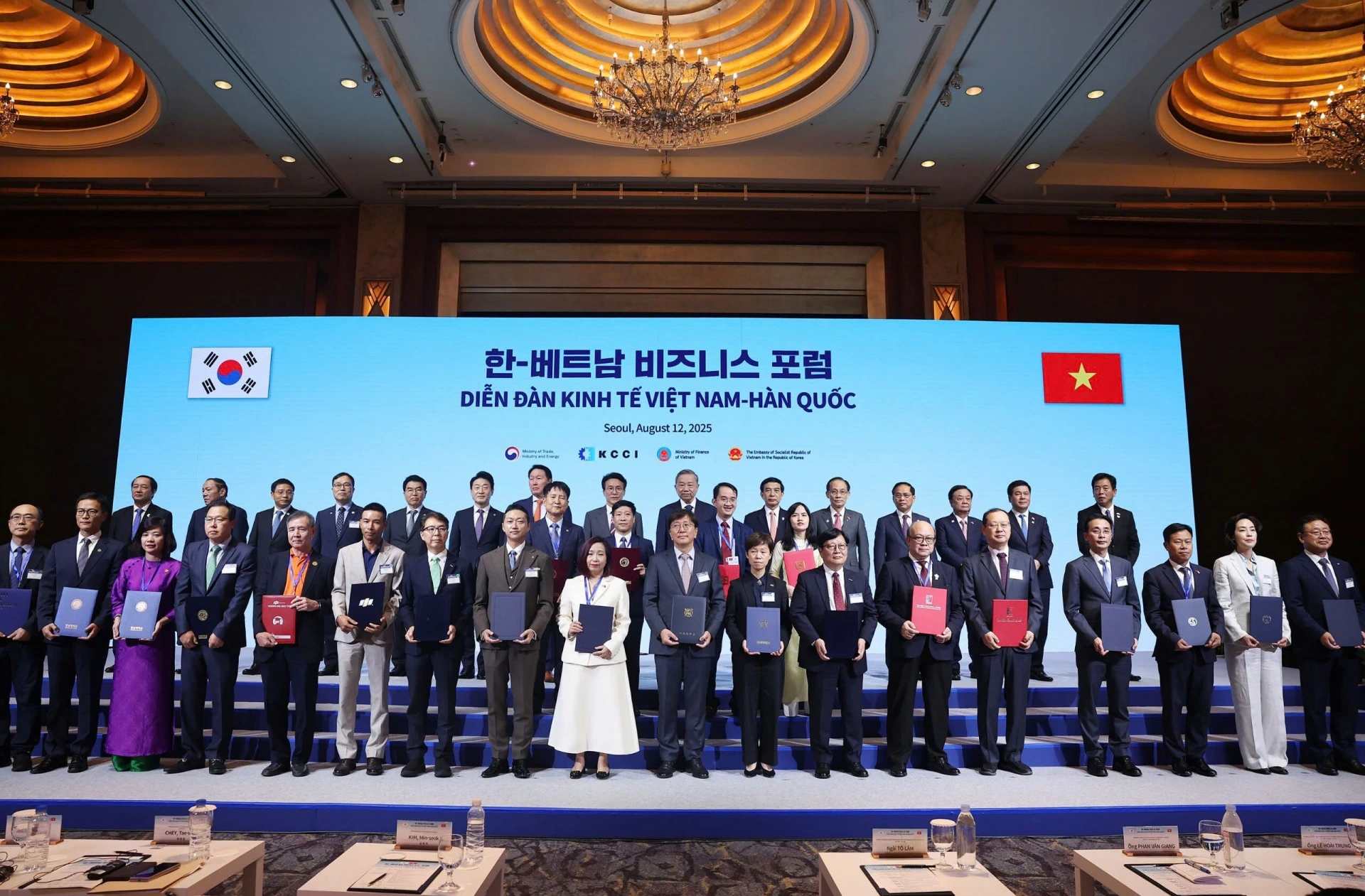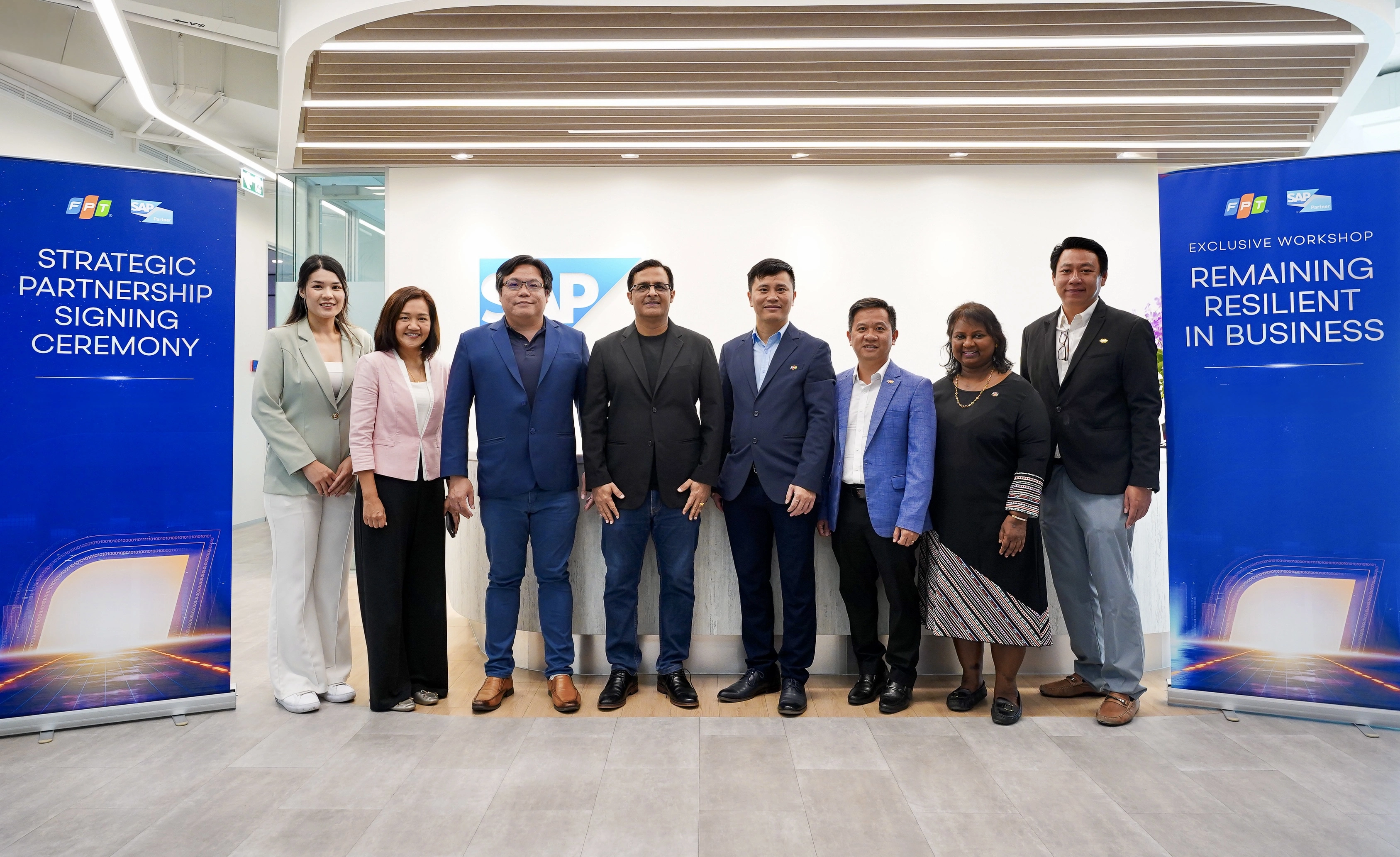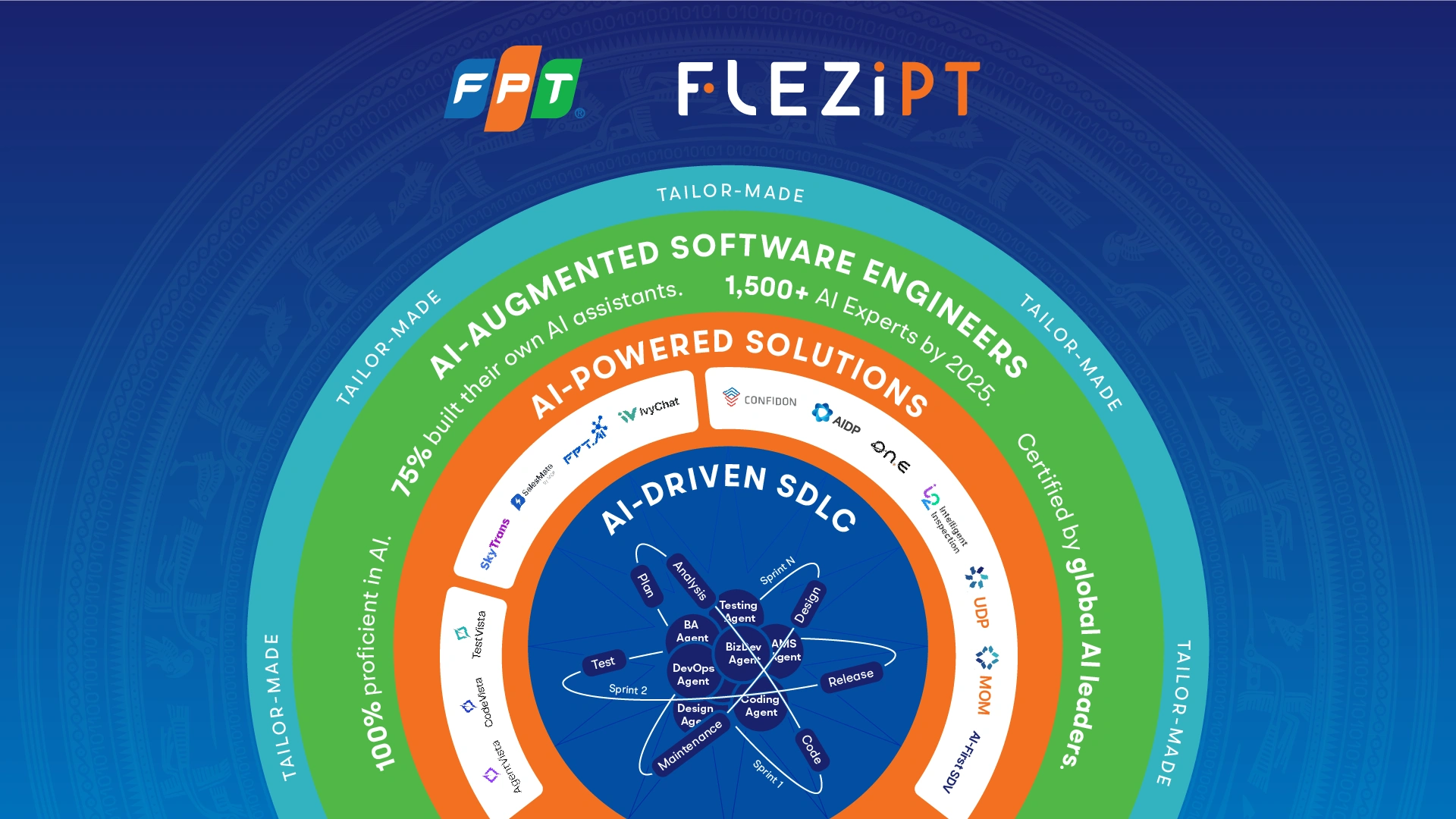
In today’s complex and competitive business environment, many organizations are adopting low-code as a viable alternative to traditional software development. Gartner predicts that by 2026, the global low-code development platform market is projected to reach an impressive USD 44.5 billion. This exponential growth is fueled by the rising need for digital transformation across industries and the ongoing shortage of skilled developers.
In this exclusive interview with ETNews, Phung Viet Ha, Managing Director of FPT Software Low-code Group, provides a comprehensive outlook on the global low-code development platform market, the key trends propelling its growth, and how FPT Software has leveraged this to help enterprises streamline their software development processes, accelerate time-to-market, and foster innovation.
Low-code platform adoption has gained unprecedented momentum in the last few years. Could you elaborate on the current market segmentation and the key trends shaping the low-code development platform market?The low-code platform market is segmented across various industries, each leveraging the technology to meet specific needs. In the BFSI sector, low-code platforms are adopted extensively for rapid application development and process automation. Healthcare organizations use these platforms for patient management systems, telemedicine applications, and other essential functions. The retail and e-commerce sectors are utilizing low-code for customer engagement apps, inventory management, and supply chain solutions. Meanwhile, the manufacturing industry employs low-code to streamline operations and integrate IoT solutions.
There are five key trends that indicate a dynamic and rapidly evolving market, with low-code platforms poised to drive significant innovation and efficiency across various industries.
Firstly, Low-code platforms are increasingly incorporating AI and machine learning capabilities to automate routine tasks, provide predictive analytics, and enhance decision-making. The second trend is the rise of citizen development, empowering non-technical users to create applications without needing deep technical expertise. Thirdly, Hybrid development models are also becoming more prevalent, allowing for collaboration between IT and business teams and combining low-code development with traditional coding to balance speed and customization. The fourth trend is ecosystem expansion with low-code vendors expanding their marketplaces for templates, components, and third-party integrations, and forming strategic partnerships with other technology providers to enhance platform capabilities. Finally, there is a strong focus on performance and scalability improvements, optimizing platforms for large-scale deployments and leveraging cloud-native technologies to ensure scalability, reliability, and performance.
With over 10 years of experience in low-code development, FPT Software has observed a significant surge in demand for low-code solutions from our clients, particularly in key markets such as Japan, South Korea, Malaysia, Singapore, and Europe. Our revenue from low-code projects and services has grown substantially, increasing by 80% compared to 2023, reflecting this rising demand. This growth is not only indicative of the broader market trend but also showcases our capability to deliver effective low-code solutions that meet our clients' evolving needs.
As a trusted IT services provider, could you share FPT Software’s experiences and capabilities in the global low-code market, and how the company has strategically established its presence in key markets?FPT Software has developed significant expertise in low-code development through our comprehensive low-code/no-code platform, FezyFlow. We also partner with leading low-code providers such as Microsoft PowerPlatform, OutSystems, Mendix, Salesforce, ServiceNow, and Pega to offer a range of solutions tailored to customer needs. With more than 2,000 employees dedicated to low-code projects, we have successfully implemented numerous projects across key global markets, including North America, Europe, Asia Pacific, Japan, and South Korea.
In North America, FPT Software has established a strong presence, working with several Fortune 500 companies on projects that streamline operations, enhance customer engagement, and develop innovative solutions across various sectors. In Europe, we have notable projects in digital transformation, enterprise application development, and customer-facing solutions, supported by partnerships with firms like Mendix and OutSystems. In the Asia-Pacific region, we leverage our proximity and regional expertise to cater to diverse markets, with successful case studies in enterprise application development, business process automation, and digital solutions for government agencies. In Japan, we have more than 3,500 employees working closely with customers, supported by over 13 branches. Our projects focus on digital transformation, automation solutions, and strategic partnerships with major tech companies to integrate low-code solutions and leverage their strengths.
Specifically for the South Korean market, we have been providing low-code services to various clients, focusing on implementation projects with local solutions. Recently, we have witnessed even more increasing demands and adoption of global low-code solutions by Korean companies, especially those in BFSI and manufacturing. Our revenue from low-code services in South Korea only has grown significantly since 2023. Notable projects include working with a Top SI company in Korea on platforms like Websquare, Nexacro, Mendix, Salesforce, and ServiceNow, and collaborating with a Top 10 Korean company on their Outsystem innovation projects.
As FPT Software continues to expand its presence in South Korea, can you share your insights on the current state of the low-code market in the region?The South Korean low-code market has been experiencing robust growth, with projections indicating a compound annual growth rate in the double digits over the next few years. The market is valued in the hundreds of millions of USD, with expectations for significant expansion as adoption broadens across various sectors.
Here we see both large corporations and SMEs making significant strides in adopting low-code development. Large corporations like Hyundai, LG, and SK Group are using low-code platforms to streamline operations, improve customer engagement, and develop internal tools. Startups and SMEs in South Korea are leveraging low-code platforms to quickly bring new products to market and manage business processes with limited resources.
However, one of the main challenges is ensuring security and compliance. Low-code applications must comply with South Korea’s stringent data protection regulations, such as the Personal Information Protection Act (PIPA). Another challenge is integrating low-code applications with legacy systems and existing IT infrastructure. There is also a skill gap, with a shortage of professionals skilled in managing and developing low-code solutions, which can hinder adoption and effective use.
As a trusted IT services provider in the low-code development market with strong footprints in South Korea, what unique offerings can FPT Software bring to clients in this region?FPT Software has extensive experience in implementing low-code projects for major companies in South Korea. We have developed a deep understanding of the challenges and needs that Korean businesses face when adopting low-code technologies, which enables us to offer a comprehensive suite of low-code solutions tailored to the specific needs of South Korean businesses. Our expertise in digital transformation, rapid application development, integration services, AI and automation, local support and training, partnerships and collaborations, innovation and scalability, and compliance and security ensures that businesses can effectively leverage low-code technologies to drive growth and efficiency. With our deep understanding of the local market and strong global experience, FPT Software is well-positioned to support South Korean businesses in their low-code journey.








































